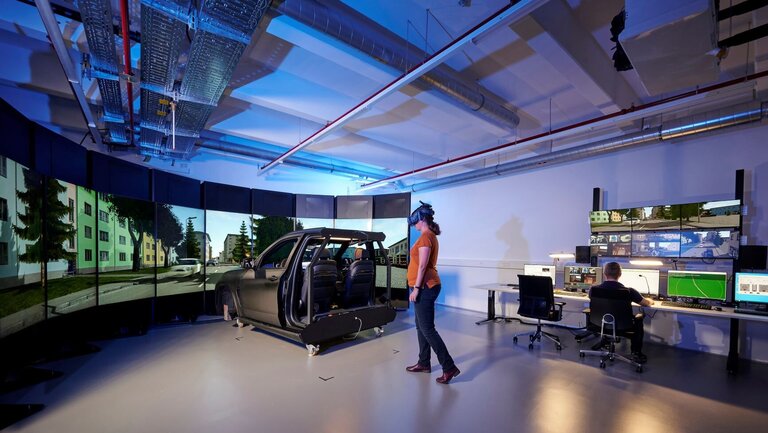Munich, December 16, 2020. The BMW Group has built a new driving simulation center in the Munich district of Milbertshofen. As the world’s most advanced facility of its type, it offers unique capabilities for the development of highly innovative automotive systems. Drees & Sommer, which specializes in consulting for the construction and real estate sector, supported the pioneering project from the feasibility study to its realization – including the development and realization of the simulation systems themselves.
The results are impressive: The building is finished and the first simulators are already up and running. In full operation, the driving simulation center will allow up to 100 subjects to complete their tests each day.
Concept development in the early stages of the project played a key role in ensuring efficient and optimized building planning. In order to review, develop and implement the plans for the driving simulation center and satisfy all of the BMW Group’s requirements, Drees Sommer carried out a comprehensive feasibility study in 2017. Drees & Sommer project team leader Marc-Peter Thunig believes this was the basic prerequisite for the success of the project: “As overall project controller with responsibility for the successful implementation of both the technology and construction aspects, we cooperated closely with the BMW experts during the study. We also analyzed various solutions, identified risks, and assessed the prospects of success. The feasibility study gave the BMW Group a sound basis for making decisions on how to realize the innovative new driving simulation center within the specified budget and schedule parameters. The Drees & Sommer experts also provided support for project approval, as well as design and approval planning, allowing the excavators to start breaking ground as early as August 2018.
Complex systems resulted in changes during construction
Changes during construction were a particular challenge. “Normally, all project participants plan the steps that are necessary during each day’s work to achieve the finished building as planned,” explains Thunig. “The primary goal is to initiate communication between the individual trades at an early stage – particularly between planners and engineers and the local tradespeople on site – and to carry out overall process analysis and develop an associated process plan.” Changes at short notice can easily disrupt the schedule and budget. But not in the case of this project: The integration of the simulators – which were developed in strict accordance with BMW requirements while construction of the building was already underway – also resulted in changes at short notice during construction. “Changes to the interface requirements ofinstalled systems during the construction phase required modifications to the building physics as well as to structural and BSE planning,” says Drees & Sommer project manager Thomas Hannemann. Despite these changes, professional Change Management, Lean Design and Lean Construction made it possible to respond quickly and complete the building on time and within the overall project budget.
